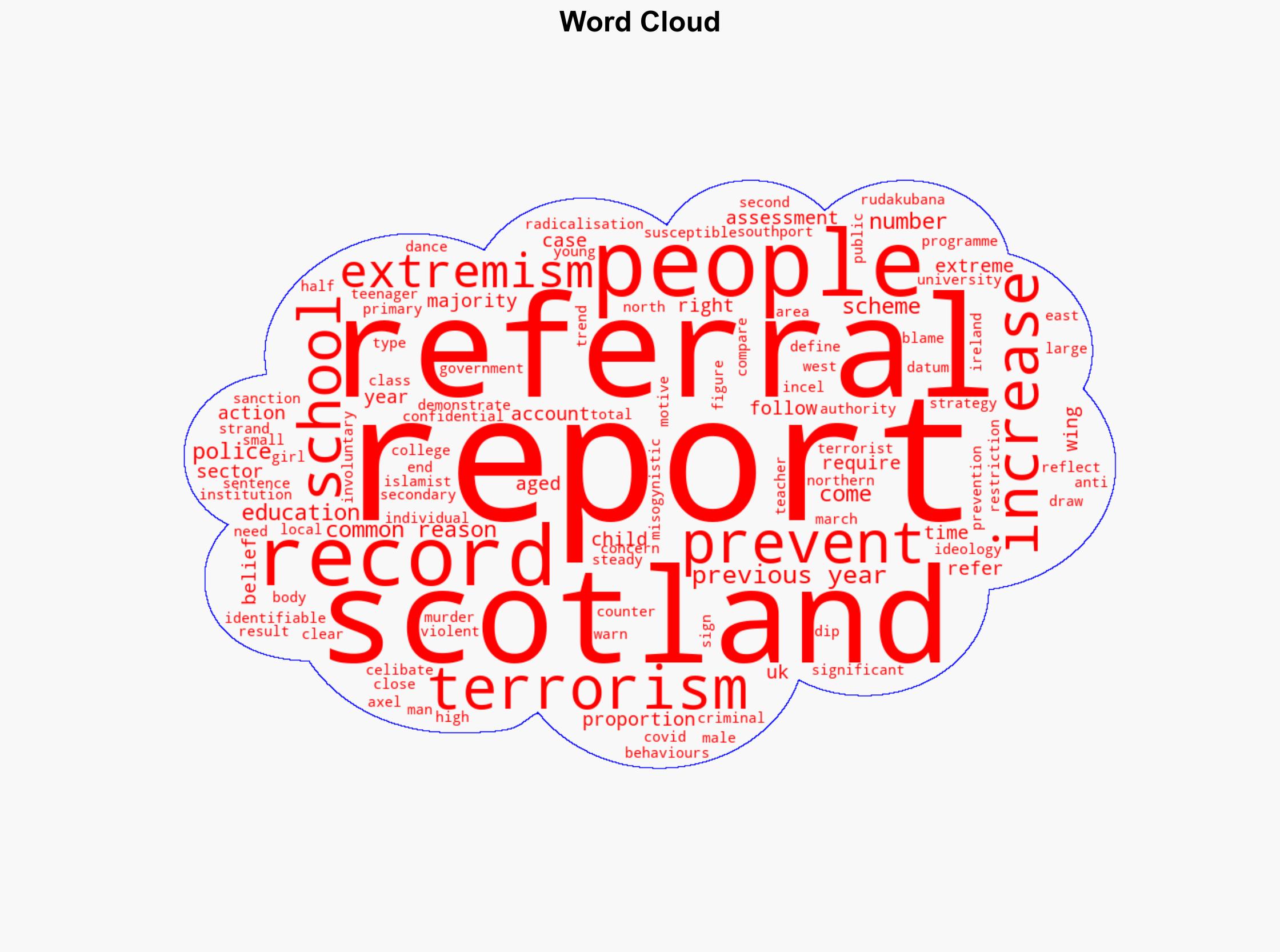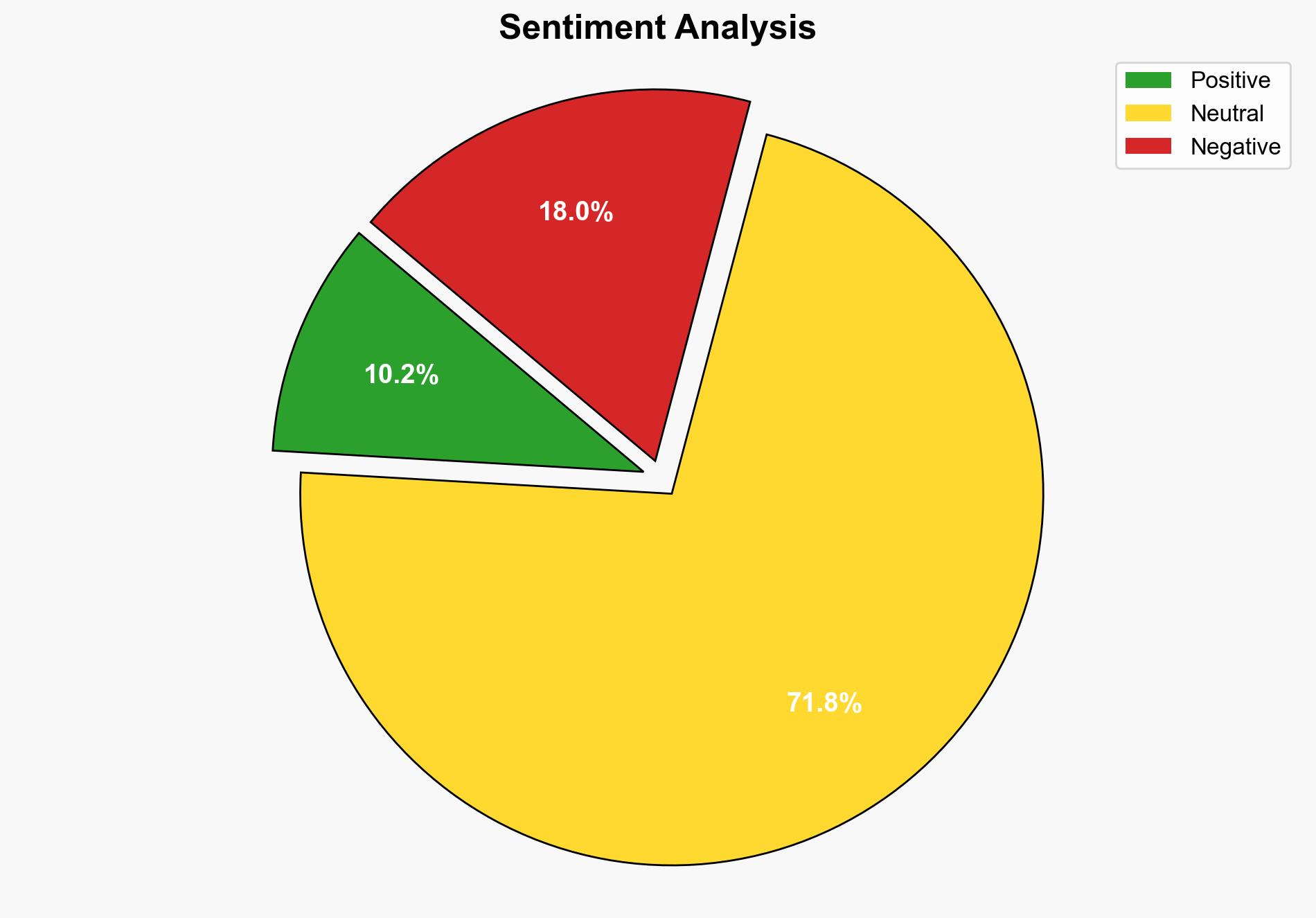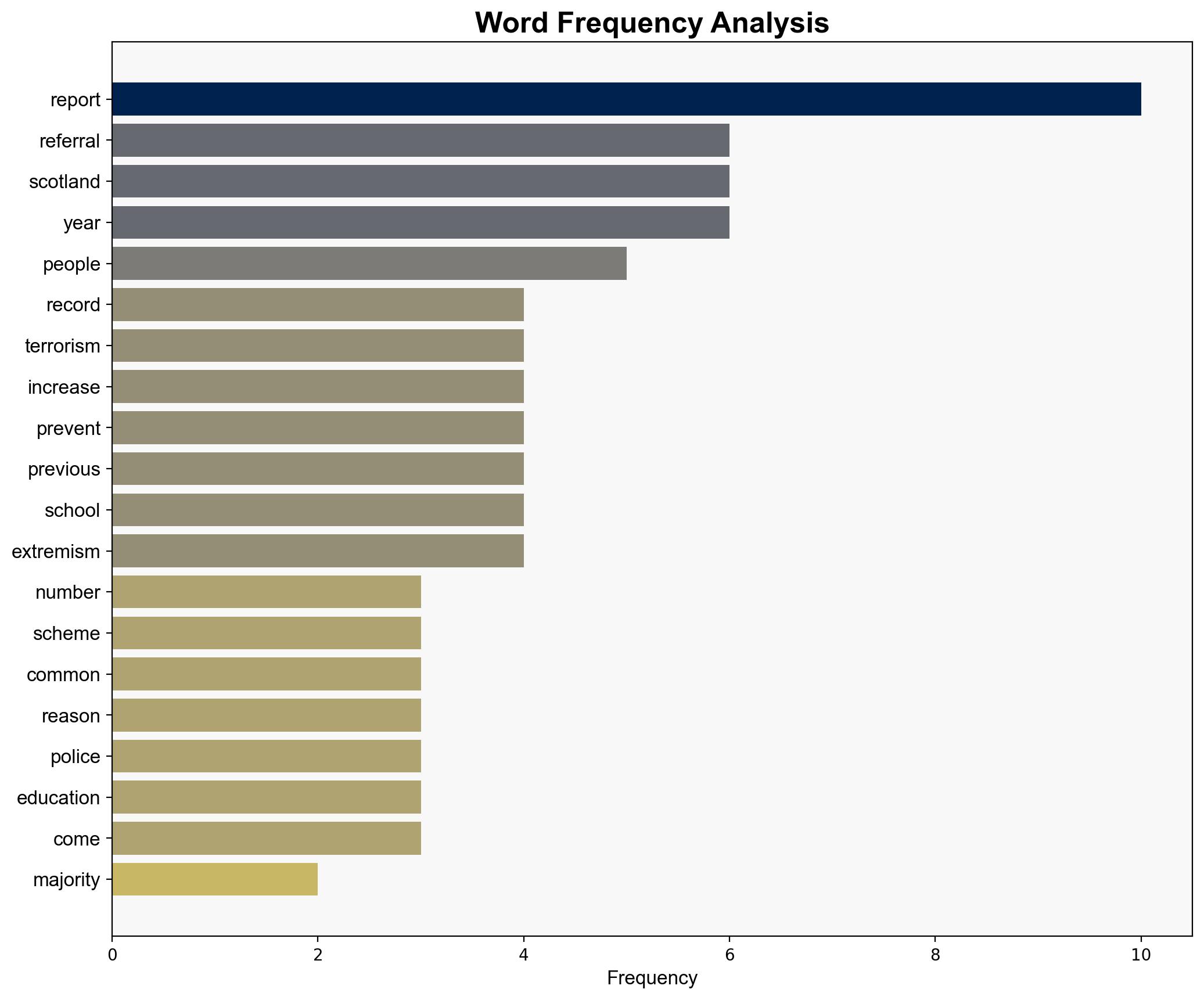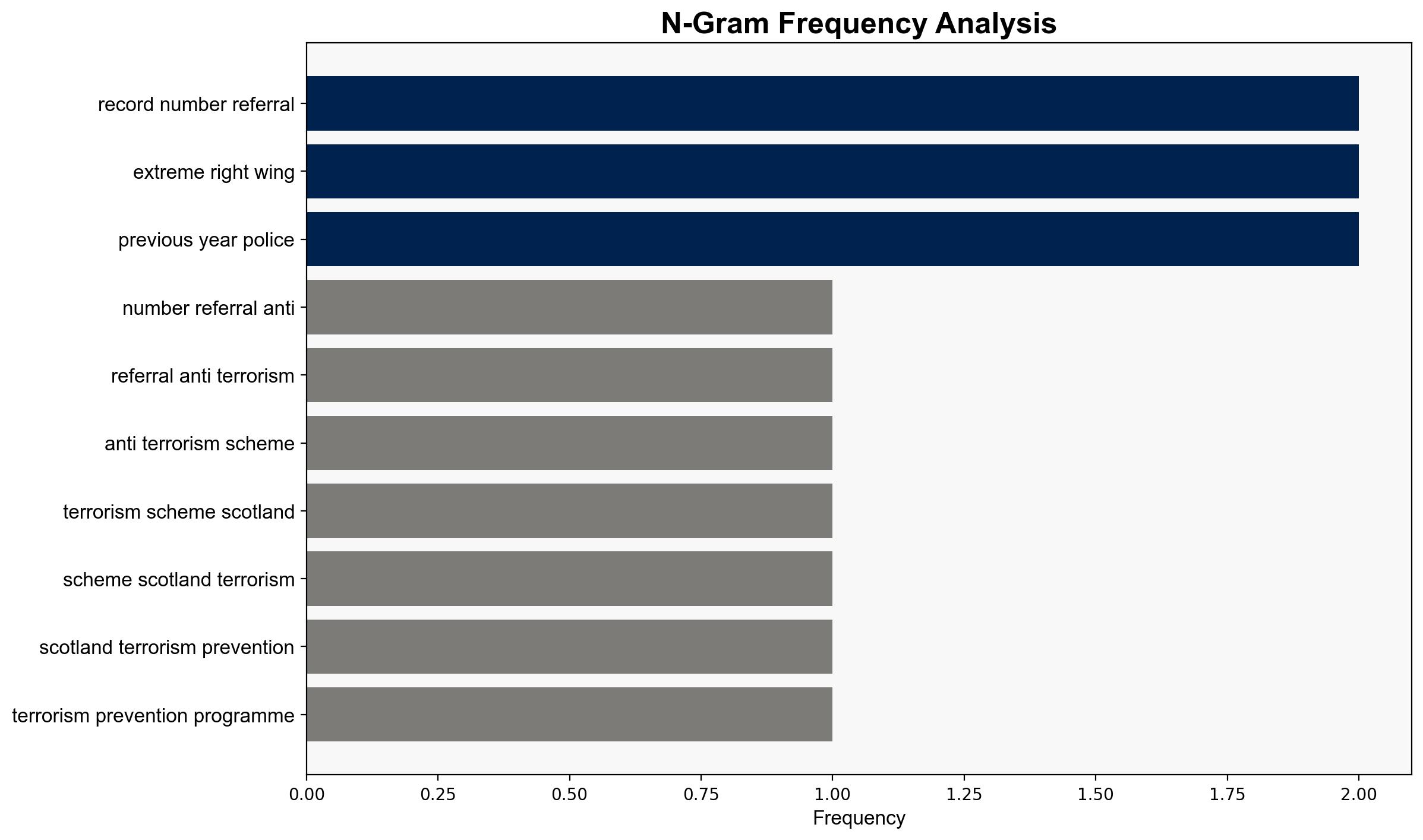Record number of referrals made to anti-terrorism scheme – BBC News
Published on: 2025-11-06
Intelligence Report: Record number of referrals made to anti-terrorism scheme – BBC News
1. BLUF (Bottom Line Up Front)
The increase in referrals to the anti-terrorism scheme in Scotland suggests heightened awareness and proactive measures against radicalization, particularly among youth and right-wing extremism. The most supported hypothesis is that this rise is due to increased vigilance and reporting mechanisms post-COVID-19 restrictions. Confidence level: Moderate. Recommended action: Enhance community outreach and monitoring to sustain and improve early intervention efforts.
2. Competing Hypotheses
Hypothesis 1: The increase in referrals is primarily due to improved awareness and reporting mechanisms post-COVID-19 restrictions, leading to more proactive identification of potential threats.
Hypothesis 2: The rise in referrals reflects an actual increase in extremist activities and susceptibility to radicalization, particularly among youth and right-wing groups.
Using ACH 2.0, Hypothesis 1 is better supported by the data, as the increase coincides with the lifting of COVID-19 restrictions, which previously limited reporting capabilities. The data does not indicate a corresponding increase in actual terrorist activities, supporting the notion of improved reporting rather than increased threat levels.
3. Key Assumptions and Red Flags
Assumptions:
– Reporting mechanisms have improved post-COVID-19.
– The increase in referrals does not necessarily correlate with an increase in actual extremist activities.
Red Flags:
– Lack of detailed data on the nature of referrals (e.g., false positives).
– Potential bias in reporting, particularly towards right-wing extremism.
– Incomplete data on the effectiveness of interventions post-referral.
4. Implications and Strategic Risks
The increase in referrals could lead to resource strain on anti-terrorism programs if not managed effectively. There is a risk of stigmatizing certain communities, particularly if referrals are not substantiated by actual threats. Additionally, the focus on right-wing extremism may overlook other emerging threats, such as incel-related extremism.
5. Recommendations and Outlook
- Enhance training for educators and community leaders to identify and report potential threats accurately.
- Implement regular reviews of referral outcomes to ensure effective intervention and resource allocation.
- Scenario-based projections:
- Best Case: Continued increase in referrals leads to early intervention and reduction in actual extremist activities.
- Worst Case: Over-reporting strains resources and leads to community mistrust and stigmatization.
- Most Likely: A balanced approach maintains vigilance and improves intervention effectiveness without significant resource strain.
6. Key Individuals and Entities
No specific individuals are mentioned in the report. Entities involved include Police Scotland, educational institutions, and local authorities.
7. Thematic Tags
national security threats, cybersecurity, counter-terrorism, regional focus





